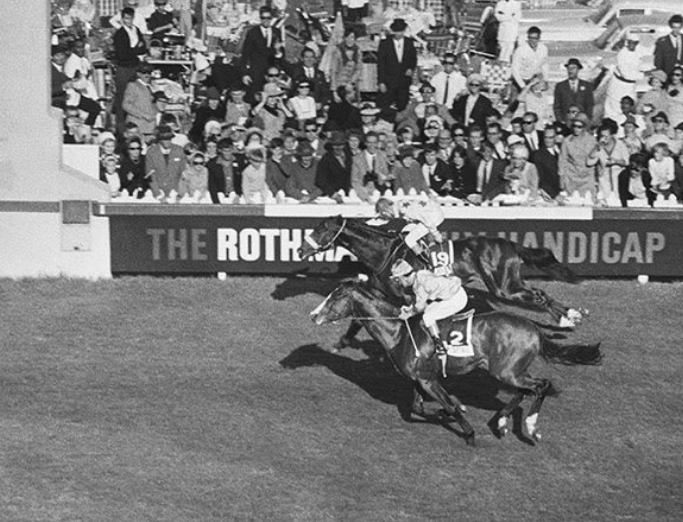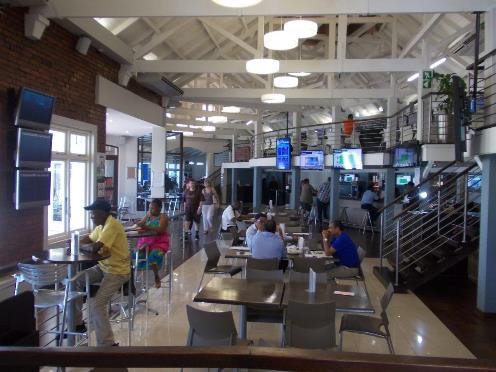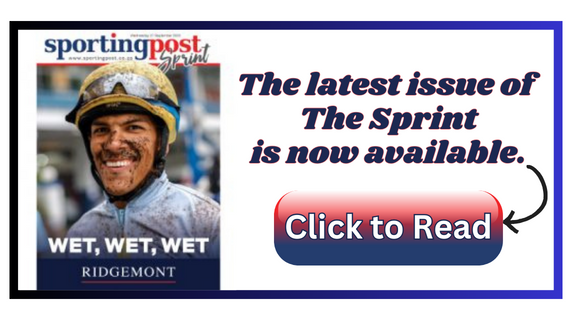Have you ever thought about where it has all gone wrong for racing and why have we been at a crossroads for some time for the greatest game in town?
Leon Smuts writes in the the Sporting Post Mailbag that it would not be fitting to answer these questions without going back in history to the glory days of the sport of kings.

Why was racing so successful in days gone by with packed grandstands, a relentless buzz in the crowd and many happy punters after a great day out?
Before the advent of television, live entertainment, movies and sport were some of the ways that the average person could escape the mundane, spend fun time with friends and family and in the case of racing have the opportunity to rub shoulders with the rich and famous.
t didn’t hurt either that it was the only legal way to have a wager and that the value of the rand made even a small win an occasion to be remembered. Pools were growing steadily, people loved the chance to dress up and what a delightful story to relate to friends and colleagues when you have had a profitable day at the course.
Those were the days where everyone dreamt about owning a champion and where the prestige of ownership was both admired and envied. The average person knew the horse’s names, the jockeys and trainers were revered and owners were considered royalty. Good days for the sport and the machine rolled on and on, then it all changed.
Other forms of gambling were legalised over time and more and more were added to the list and of course television made its long awaited arrival. All this had an ever growing impact on racing and attendance of racing.

These are all well known facts, but my marketing interest is in why it went so spectacularly wrong for racing.
Racing had a huge following and a loyal customer base that is still evident today. When racing is in the blood people seldom pack it in as the skilled player is able to frequently or at least occasionally have successful bets that keep the interest from waning.
In my analysis the most telling mistake that the administrators of racing made was to not have a concerted marketing strategy to keep the sport growing amid the onslaught from all quarters.
The emphasis moved erroneously from growing the customer base to merely growing turnover as it was argued that racing had almost 100% of the wagering cake. It must have presented as a solid strategy to hold on to what you had and to try and extract the maximum from your existing customer base. This is still the failed basis of expansion attempts even today and a major stumbling block to a much needed racing revival.
To aid in this mistaken objective the following things were done over a period of time.
We went from a midweek and weekend race day to adding more race days. Additional races were also added to the card and a host of new products were introduced over time, all aimed at getting the existing customer to play more and to be involved in more bets.
Take out was also increased when the aforementioned could no longer provide the necessary returns.
Thankfully broadcasting rights became a big thing and with daily quality content on offer has been the saving grace for racing for quite some time. World pools have been introduced and co-mingling supplies large numbers of customers without any need for local expansion anywhere internationally.
Two problems with this are continuous pressure on the quality of the content that has to be provided to maintain the attraction and the rapid ageing of racing’s customer base in most international jurisdictions.
The bigger problem however is that this easy out absolves operators from fulfilling one of the most basic functions of good business which is to continuously grow the customer base.

Local racing has been relying on a relatively small number of big spenders and churn for the majority of turnover but this is unsustainable and together with the average age dilemma is seeing the sport heading towards even tougher times.
Despite this reality I see almost no interest in boosting the tote’s contribution and this seems to be a universally accepted omission.
Racing is fortunate right now to have a number of very generous benefactors that love the sport and who are willing to contribute large amounts to keep it afloat. I don’t doubt their intentions or commitment but it would be foolish to rely exclusively on their subsidisation and continued support of the sport.
There are real risks that racing might not survive in its present format if the level of required subsidisation continues to increase and no turnaround strategy is considered or introduced.
It would be extremely short sighted and a missed opportunity to not attempt to revive the tote as it is essential for racing’s future and to be able to be self-sustainable. At present the tote revenue is not able to fund all racing operations, and getting it to a point where it can in ever increasing numbers should be a key objective in the fight for the industry’s survival.

It is regularly mentioned that the tote is dead and this grave perception should be alarming to anyone making a living from racing. The tote is integral to racing’s longevity and everything possible should be done to return it to good health. The concept of pooling is an immensely strong but badly utilised tool that could once again be profitably positioned to grow racing out of its current slump.
Our new operators should not make the same mistakes that has brought racing to its current plight by forever doing everything other than growing the customer base. It has never been more important than right now to introduce the elusive recipe of making racing desirable to a diverse and numerically significant number of new people and to grow pools into mega opportunities for both customers and racing.
The tote can be a significant contributor to the re-emergence of racing as mass market entertainment and all that is needed is to put the customer first with products designed to maximise enjoyment, affordability and profitability. Build better products around customers and give them a real reason to get involved and stay involved in racing.
In my opinion racing mostly only makes sense if you are participating in the action and right now there are only two options outside of a professional involvement.
Firstly there is ownership, which is prestigious and surely the most enjoyable if successful, but also outside of the reach of the majority of ordinary people given the costs. I guess that adds to the prestige but it does little for the exposure of racing to a much bigger audience.
The second, more affordable option is punting, but it is a difficult art to get even close to mastering and not everybody wants to gamble or be known as a gambler, which makes it reputationally less desirable for many.

What if a third option can be created that would open the door to mass participation with a player offering that is aspirational, more prestigious and where wagering is not a requirement?
This option is something that I have worked on for more than a decade and would give racing the most attractive marketing tool with which to build a brand new customer and fan base and from which growth possibilities would be immense.
The possibilities are also not limited to the local market as it has all the elements for wide scale international appeal and inter tote co-mingling. My preference would be for a local introduction and for the lead operator to play a key role in any future international roll out. South Africa has been at the forefront of many global innovations and racing need not be the exception.
I want to invite our local operators to consider investing in a project to revive the tote and shape it to its full potential.
We are able to deliver two great original products, designed to make racing easily accessible and more entertaining and rewarding than ever before.
I am confident that we could successfully build a new and younger market for the sport that will provide meaningful growth potential for many years to come.









